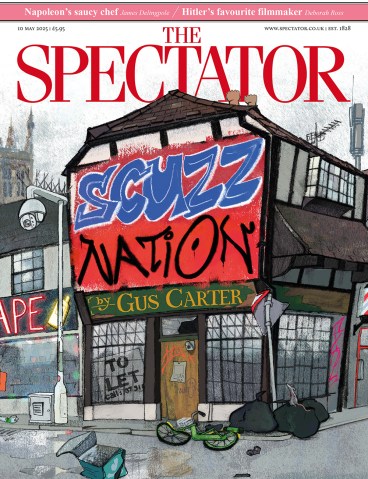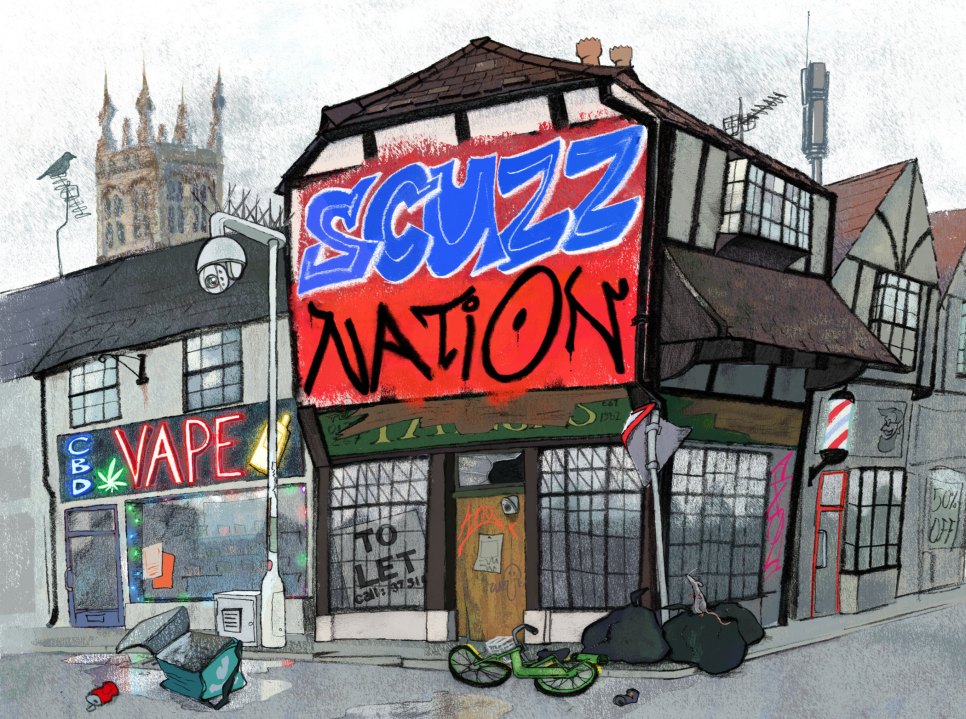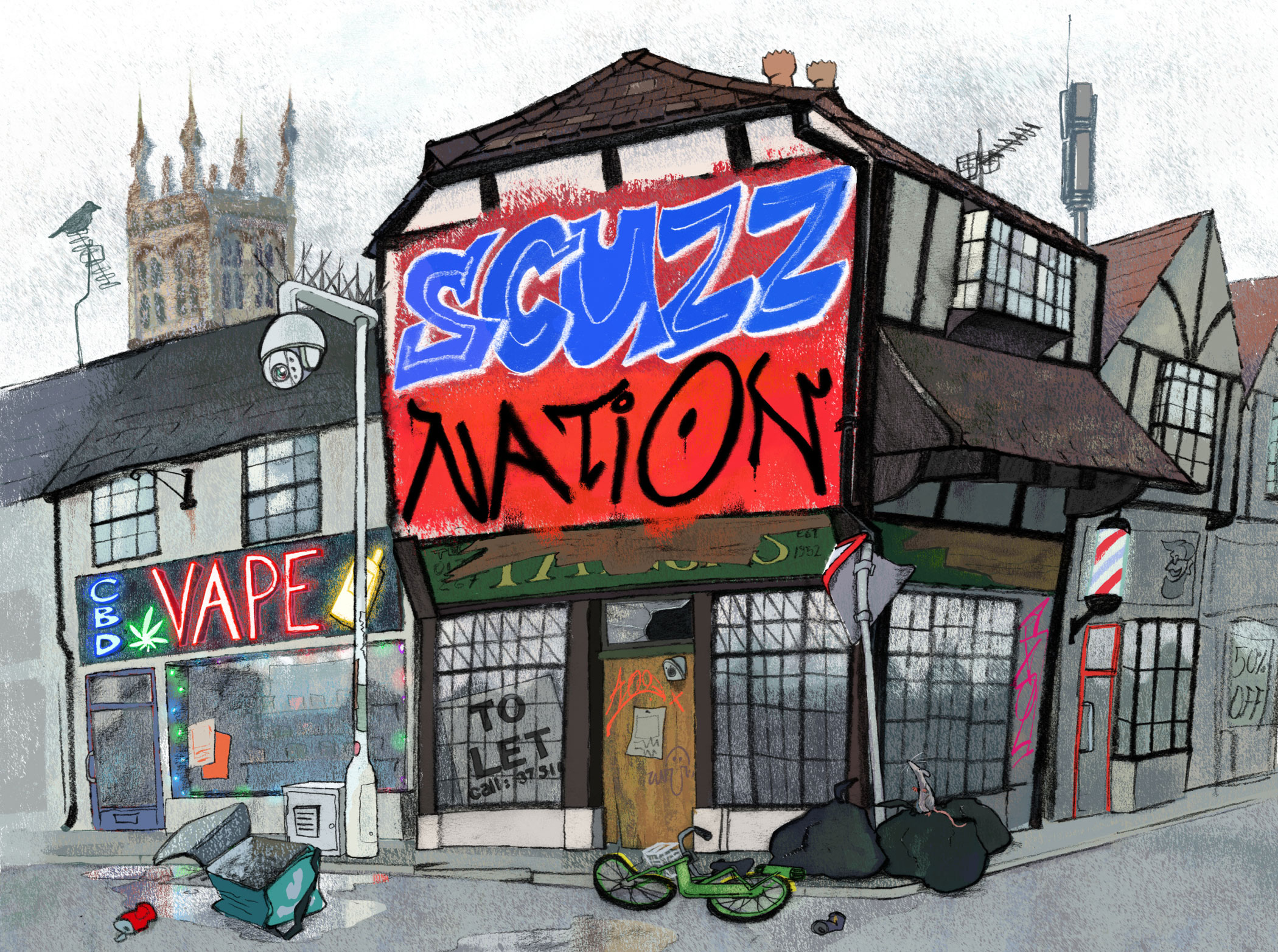
Reform’s success in last week’s local elections has been attributed to many causes. Labour’s abolition of the winter fuel payment for pensioners. The hollowing out of the Conservative party’s campaigning base. Nigel Farage’s mastery of social media. But if you want an emblem of why voters turned their back on the political establishment let me give you Goat Man. In one ward in Runcorn, the seat Labour lost to Reform by just six votes, residents found that no one would listen when a neighbour filled his derelict house with goats and burned the animals’ manure in his garden. Despite repeated appeals to authority, no action was taken. If the council had dealt with this flagrant, unsanitary, anti-social behaviour, one campaigner told me, Labour might just have scraped those extra six votes.
Goat Man’s particular style of contempt for public order may not be widely emulated, but every neighbourhood has its examples of anti-social behaviour going unaddressed. My local nemeses are the car thieves. I watch them from my London balcony as they make their way down the road, smashing through side windows and grabbing whatever they like. The first few times I called the police but nothing happened. No squad cars ever arrived and it took more than 20 minutes to get through to a call handler. I wrote to my local councillor but she passed me back to the police, who told me: ‘We do not work the nights often.’ I’ve shouted at the car thieves and once chased them down the street but I’m worried I’ll make myself a target – I’ve seen too many machete attack videos – so now I stand mutely watching because there isn’t much else I can do.
Fewer than one in 100 car break-ins in London result in a charge. Such statistics don’t shock us any more because they’re so common. Shoplifting is at its highest recorded level; fly-tipping is up 50 per cent over the past decade; there’s a burglary every three minutes yet 96 per cent go unsolved; most people say they’re seeing more anti-social behaviour but the number of incidents recorded by police has fallen to a historic low. Everywhere we look, Britain appears grubbier and more unpleasant. Welcome to Scuzz Nation.
Scuzz Nation looks very much like the country of a few years ago, only worse. It’s a place where decay happens faster than repair, where crime largely goes unpunished and where the social fabric has been slashed, graffitied and left by the side of the road. Progressives often sneer at Farage’s favourite campaigning slogan – ‘We want our country back’ – asking back from whom, or back to where. To which the residents of Scuzz Nation reply: back from the growing number of people who flout the basic rules of civilised behaviour. And back to a country where the rule of law is actually observed on our streets.
Take a walk down Scuzz Nation’s high streets to see what they mean. Twice the number of shops are empty compared with 2007 and those that remain sell vapes, American candy or second-hand phones of dubious origin. There are lots of Middle Eastern barber shops too, which seem curiously empty. Police in Shrewsbury recently raided one as part of a national crackdown on money laundering. The barbers claimed they had a turnover of £1.8 million – impressive for a town of 76,000 people. Citizens of Scuzz Nation don’t go out as much as they used to, because it’s too expensive and their town sometimes feels a little scary at night. Pubs continue to close, while the number of takeaways increases. Food delivery cyclists run red lights on illegally modified e-bikes. Many are euphemistically called ‘irregular migrants’.
Public anger with the visible decline has been a major factor in driving voters to Reform, according to the pollster Luke Tryl of More in Common. He argues: ‘One of people’s big frustrations is that when it comes to things like fly-tipping, vandalism and shoplifting, it feels like there’s no consequence. Those who do the right thing feel like mugs for doing so.’ In focus groups just before the elections he recorded voters across every background describing the country as ‘a shambles’, ‘effed up’ and in decline. Seven in ten voters will tell you the country is getting worse.
It’s a place where decay happens faster than repair and where crime largely goes unpunished
The few remaining optimists might say that despite a general sense of lawlessness, reported crime has actually been trending downwards. They’d be right, but such claims don’t reveal the full truth. A majority of people who witness crimes don’t bother to report them, with more than half saying they believe the police will do nothing. And who can blame them? Victims have a less than one in ten chance of seeing justice. There’s good reason for thinking that the fall in reported crime is really about people giving up on their failing police.
I once caught a Polish street scammer as she was trying to defraud a member of the public next to Victoria station. I called 999 and was told the police couldn’t arrive for at least an hour. When I said that wasn’t good enough, that I was worried the scammer might be part of a gang and I was putting myself at risk, the handler burst into tears. The scammer was also crying that she was going to be deported. (She needn’t have worried, fewer than one in five foreign criminals are sent home.) I found myself standing between two sobbing women wondering why I had even bothered.
The policeman who once patrolled the streets has largely been replaced by the roadman, who saunters around shopping centres with an air of menace. His face is often hidden behind a balaclava and over his tracksuit he carries a designer shotter bag for dealing drugs. Cocaine deaths in Scuzz Nation are ten times higher than they were a decade ago.
The roadman occasionally indulges in the extreme violence of the zombie knife. A friend who works at a pupil referral unit in Bristol recently had to keep a gang of roadmen from forcing their way into his school. They attacked one pupil and my friend looked on as another teacher tried to scoop the victim’s intestines back into his abdomen. Thankfully the boy survived but was himself later arrested for slashing another child’s bottom (a favoured humiliation technique among roadmen). The number of offences involving a blade has nearly doubled in the past ten years.
Taxes are as high as they can be without widespread revolt and public services are always just shy of collapse
There has been an undeniable shift towards violent nihilism. Partly it’s because the old safety nets for wayward young men have disappeared. Since 2010, grants from Westminster to local authorities have fallen by 40 per cent, which means many have cut back on apprenticeships and youth centres. Councils have become deeply defensive, dealing with problems only once they arise instead of focusing on prevention. Most can only just meet their statutory duties. I’ve heard stories of parentless teenagers being put in halfway homes with drug addicts. Others have been given tents. Another box ticked. Problem solved.
Anything that a council can cut without risk of litigation has been. In the space of a decade nearly 1,800 public toilets were closed at the same time that libraries were sold off and public events like fireworks were pared back. Services such as bin collection have been outsourced to companies that make unrealistically low bids while promising to maintain standards. Look at places like Croydon, where the private contractor Veolia won a £22 million deal to improve services and then removed 1,000 street bins to lower costs. Littering has unsurprisingly soared.
Councils find any way they can to increase their revenue, hiking charges for leisure centres or commercial waste removal, all of which means higher prices for consumers. Parking tickets are becoming more expensive, which further discourages shoppers from visiting high streets. In 2023, Kirklees council in West Yorkshire increased the price of parking by 60 per cent.
We seem to have mixed the worst of market capitalism with an ever growing, ever more useless state. Privatised water companies are close to bankruptcy, with citizens facing spiralling bills and shareholders receiving larger and larger payouts. Then there’s the record levels of sewage pumped into rivers because these private utilities choose dividends over investment. The government says it wants to stop the mass dumping of sewage and yet shows little ability to do so. There’s been talk of empowering the regulator so that civil servants can strip offending bosses of their bonuses. Perfect. That’s just the kind of ineffective gesture politics at which Scuzz Nation excels.
Some parts of Scuzz Nation leave us feeling uncomfortable, particularly when it comes to immigration. According to the Centre for Migration Control, one in five Albanians here has been arrested and one in 36 is in prison. They have managed to take over much of the county lines network, bringing in more cocaine and co-opting the roadmen as street dealers. As a recent Home Office report found, Albanian gangs act as ‘the main wholesaler to powder cocaine retail operations’.
Most of the time we don’t like talking about foreign criminals. It makes us feel a bit uncomfortable. Only when faced with something as sadistic as the grooming gangs scandal does our anger become public. Here, too, we find that Scuzz Nation is partly to blame. NHS workers and social services turned a blind eye and victims who reported perpetrators to the police say they were dismissed.
A fear of seeming discriminatory haunts the vast army of public-sector workers. Rick Prior, the now-former chairman of the Met Police Federation, was fired last month for saying that the police’s job is getting harder because of ethnic tensions. ‘There seems to be an assumption of racism right from the off,’ he said, ‘particularly when it’s a white officer and a member of the public from a minority ethnic community.’ Such statements are obviously true – just look at places like Rotherham, Rochdale and Telford. But appearing tolerant is more important than doing the right thing in Scuzz Nation. Anyway, it’s not as if proper law enforcement is affordable any more, even if the police wanted to give it a go.
One almost suspects that somewhere in the Treasury, a group of analysts has made a detailed formula: the tax-to-crapness ratio. On the one hand voters resent living in a degraded country. But we resent losing ever more of our wages to a useless system too. The result is that taxes are as high as they can be without widespread revolt and public services are always just shy of collapse. Scuzz Nation is built on such miserable efficiencies. It is the culmination of millions of decisions designed to minimise risk to the civil servant and avoid responsibility. Is it surprising that the public vote in such numbers for those who say the system is broken? No one in authority wants to do what is necessary to stop the scuzzy, unhappy decline of Britain.









Comments